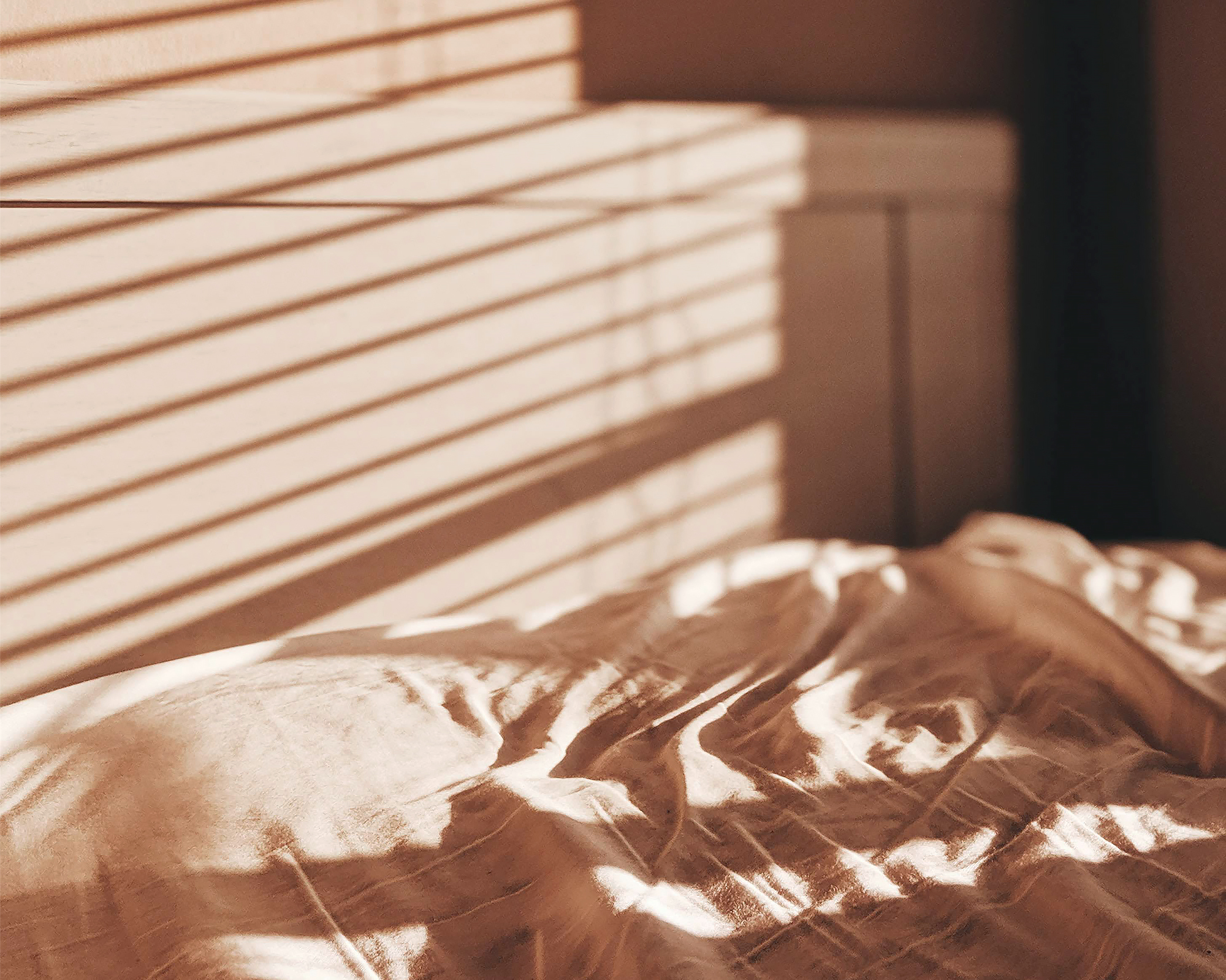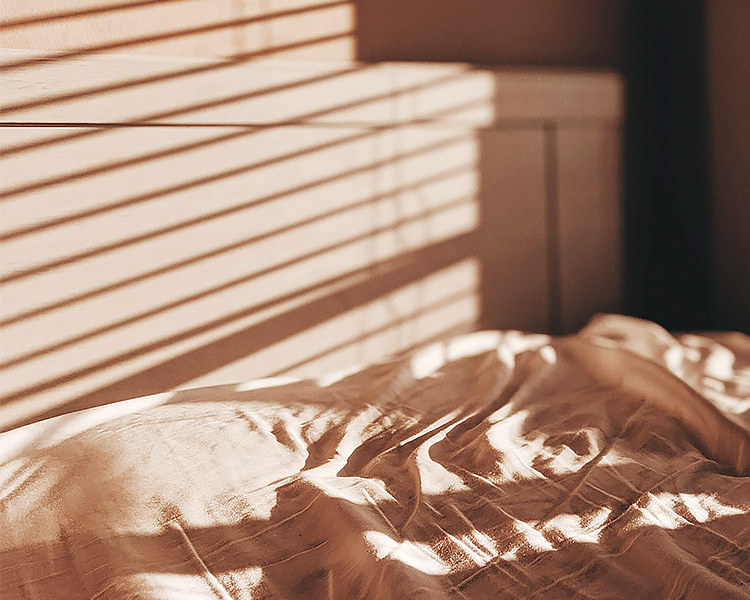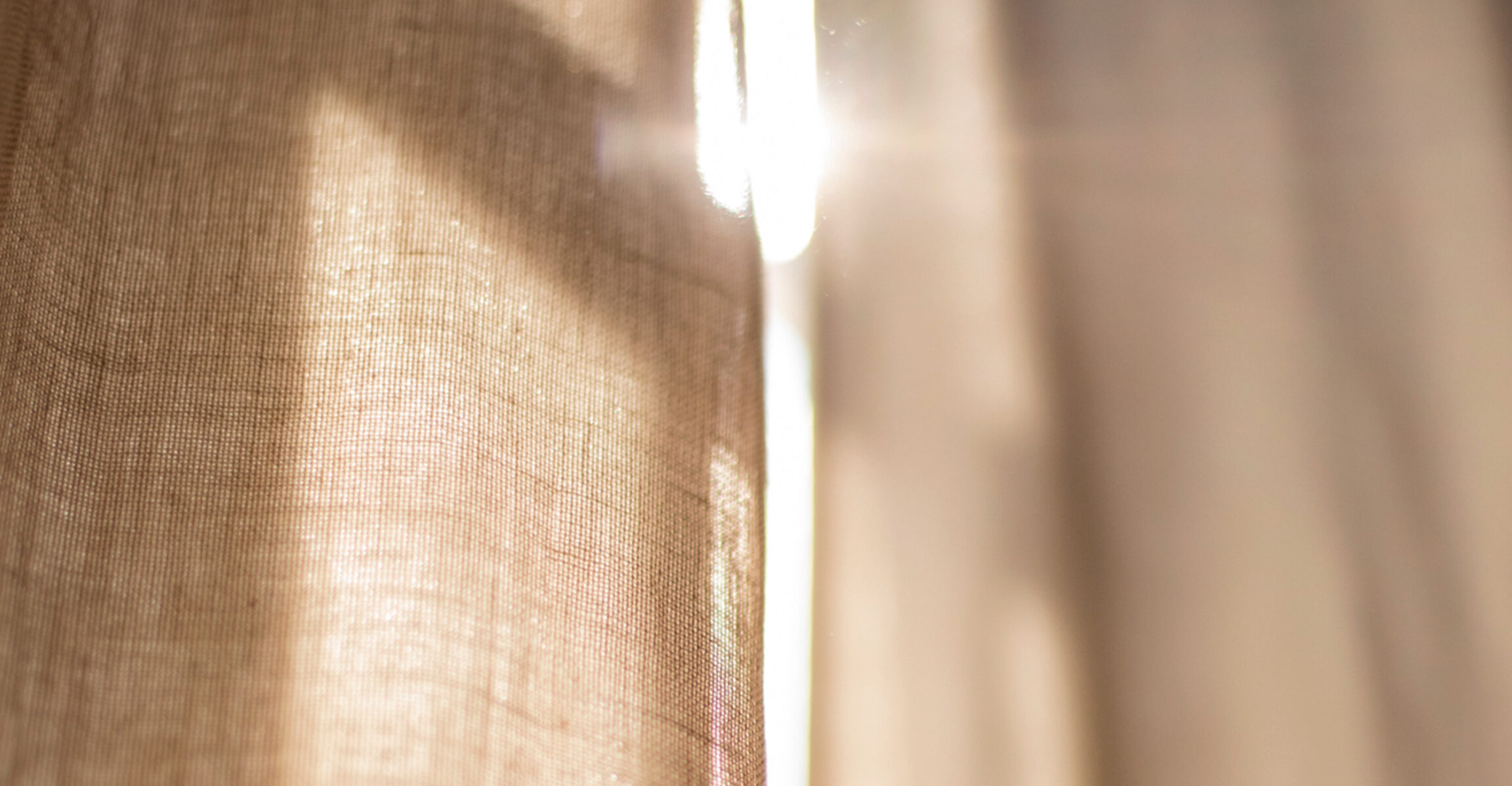


Lifestyle / Advice
May 5th, 2022
How does sleep affect the skin and what are the benefits?
By Florence Masson
did you know?
We spend more than a third of our lives sleeping… But that time isn’t lost, quality sleep gives the body a chance to repair itself, and it’s especially important for keeping the skin healthy. Sleep is not only essential for expanding, developing and preserving our brain function, it is also the secret to healthy, beautiful skin. A fairly recent discovery of the concept known as the “exposome” – which includes all the factors to which our body is exposed – suggests that stressed and unbalanced skin is caused by a lack of sleep. Just like exposure to the sun, air pollution, a poor diet or mental health issues, quality of sleep affects the skin’s appearance.
Could getting a good night’s sleep be the best advice yet for a beautiful face and healthy body?
The skin changes from day to night
Daily changes in the skin are known as its “chronobiology”. Just like us, our skin cells follow a 24-hour cycle and adapt to the time of day, regulated by daylight and darkness.
It is very active during the day, boosting its protective functions to ward off environmental threats, while at night it takes time to regenerate. But that doesn’t mean the skin is resting! Cell renewal systems (and all the metabolic processes that go with them) are working at full throttle. Blood flow and collagen synthesis increase, and cell division is stepped up to repair and renew the skin cells. The lipid film has an essential “skin barrier” function that plays a role in the immune system and helps to combat microbials. During the night, this film is reformed on the skin surface.
The skin’s biological routine must be respected if it is to carry out all this beneficial work. The expression “restorative sleep” takes on its full meaning when you realise just how much hours of sleep really benefits the skin.

How does our skin react to a lack of sleep?
A night during which you sleep for less than seven hours has the effect of stressing out the skin. Levels of the stress hormone known as cortisol, which is supposed to subside overnight, remain high in the blood. Cortisol breaks down collagen, the protein responsible for keeping the skin supple and firm. A lack of sleep, and especially insomnia, therefore generates oxidative stress, which is likely to cause premature skin ageing.
Some studies have even shown that when the body is deprived of sleep, the skin’s ability to repair itself is compromised, such as in cases of sunburn.
Getting less or poor quality sleep also means weakening our skin’s immune defences and creating an imbalance within our skin microbiota. The microbiota is an army of essential microorganisms – invisible to the naked eye – which protect the body and keep the skin in healthy balance. A good night’s rest will leave the face looking fresh, while a lack of sleep will soon be obvious: dark circles, dry skin, puffiness, red and swollen eyes, appearance of wrinkles and signs of ageing. These signs can be disappointing to see in the mirror when we wake up in the morning.
How is it best to prepare the skin for a good night’s sleep?
It’s crucial to take care of the skin before bed so it can benefit fully from a restful and restorative night.
1
Cleanse the skin carefully in the evening: remove all traces of make-up, UV filters and pollution build-up to give your cells the best chances of renewing themselves. It’s best to cleanse twice and with mild products that contain no detergents. Start with an oil/balm cleanser to eliminate oily residue, then follow with a rinse-off gel or lotion-based cleanser, or an enzymatic cleansing foam.
2
Deeply cleansed and free from impurities, the skin is more receptive when it is time for a serum or moisturising cream care.
3
Boost the skin with care containing suitable anti-ageing active ingredients such as serums for wrinkles or serums for skin firmness, to make the most of the optimal cell renewal that takes place during the night.
4
Apply a cream or revitalizing emulsion at night to moisturise the face, strengthen the skin’s barrier function and rebalance its microbiota.
5
Relax and release the facial muscles with a skin massage!

9 tips to apply (starting tonight) for restorative sleep and a healthier routine
- Adults between 18 and 60 years old should sleep at least 7 hours each night.
- Go to bed at the same time every evening to respect your body’s sleep pattern.
- Get an early night!
- Do plenty of regular exercise during the day, but never in the evening.
- Avoid caffeine and stimulants after 4 p.m. because they can interfere with sleep.
- Eat a light meal: a full stomach cause poor sleep quality.
- Adjust the lighting: soft lights in the evening and lights off for sleeping help to promote melatonin production.
- Switch off all screens at least 1 hour before bedtime: blue light mimics the body’s “daytime” mode and generates free radicals that attack the skin.
- Meditate before bed to enhance the benefits of sleep on your emotional balance!